|
Administrator
|
Only one of the eaglets has been visible to viewers over the past few days. I visited the nest this morning about 8:30 AM. The female (Jewel) was roosting next to the nest on the right. I did not notice this at the time, but the smaller eaglet was actually visible below her, behind the branch:
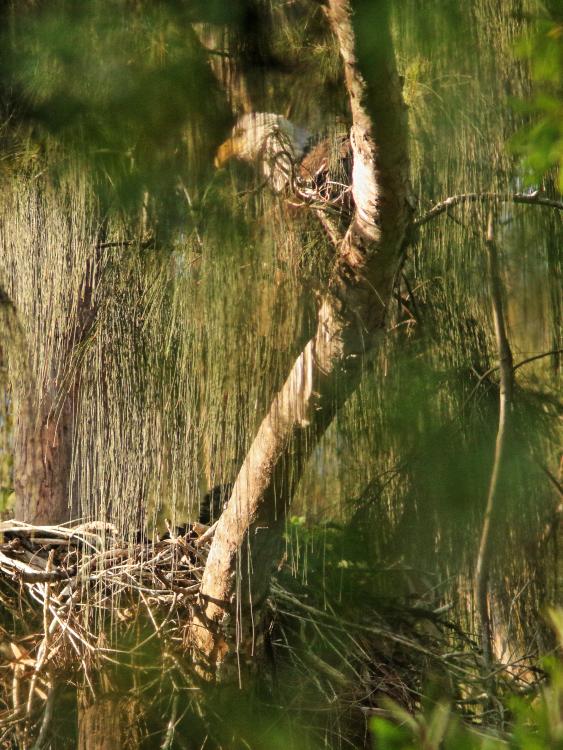
After about ten minutes the large eaglet began moving and was readily visible.
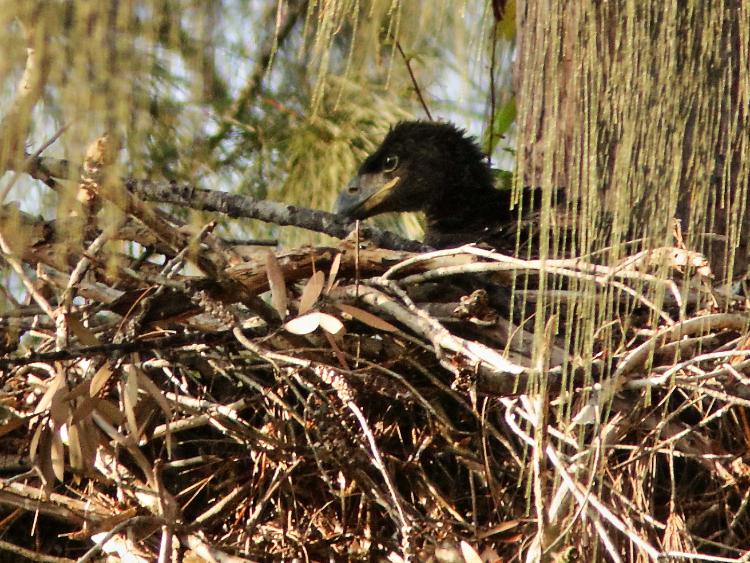
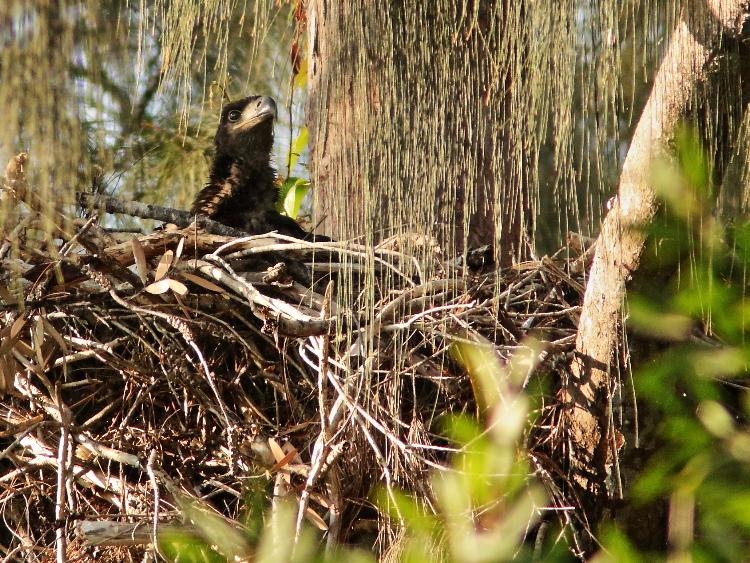
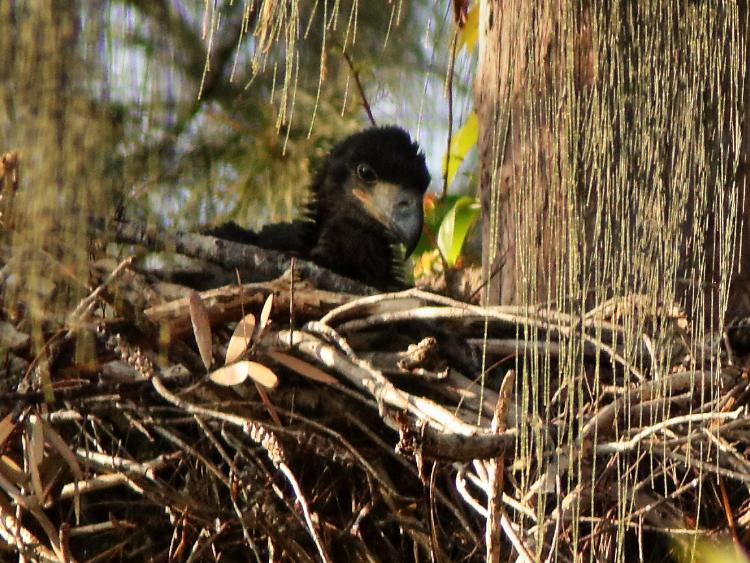
I thought I saw some movement did get some glimpses of what I thought was a second eaglet over to the right side of the nest. I took over 100 photos and in only one frame was I able to see both eaglets fairly clearly. Look closely to the right, as the smaller one is partially hidden by the pine "needles"*:
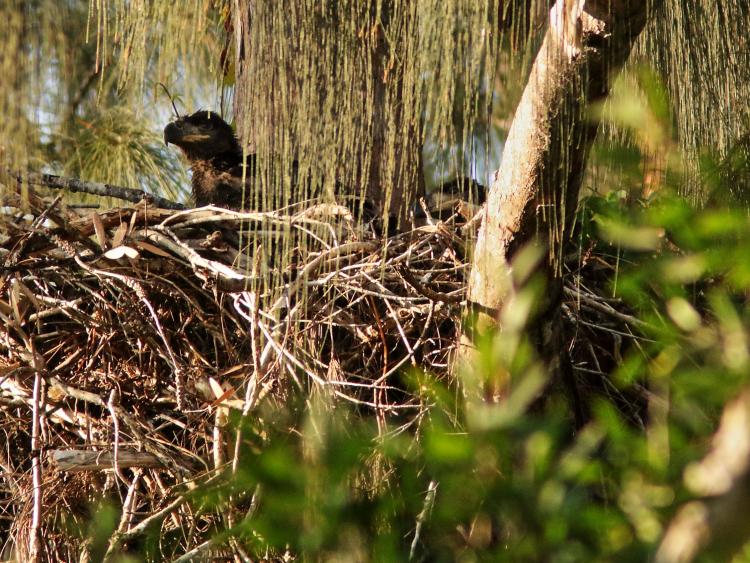
I presume that the first hatched was a female, which is the case about 70% of the time. The female is larger than the male at all stages of life, and female eaglets are more aggressive than males. If the second-hatched is also a female they may fight and there is danger of injury or death to either. A second-hatched male eaglet will usually not compete with a female. This is probably the case here, as the smaller one was staying low and out of the way of his sister. The female-male sequence is associated with the most successful broods.
A little later, Phil Martin visited the nest and provided this photo and confirmation that both eaglets are safe and secure. He writes (April 18):
Hi Ken,
I stopped by the nest today at 11:45 and saw both Eaglets. This is the best photo I could get documenting both. To my surprise, there were no adults at or around the nest.
I spoke to a gentleman that told me on Thursday, he saw both adults bathing in the lake behind Pollo Tropical on Pines and 178.
Phil
He later added--
Yes, the little one was where you saw him. As I looked through my camera I saw the bigger one come over from the center to the spot by the branch. Neither had their head up at the same time.
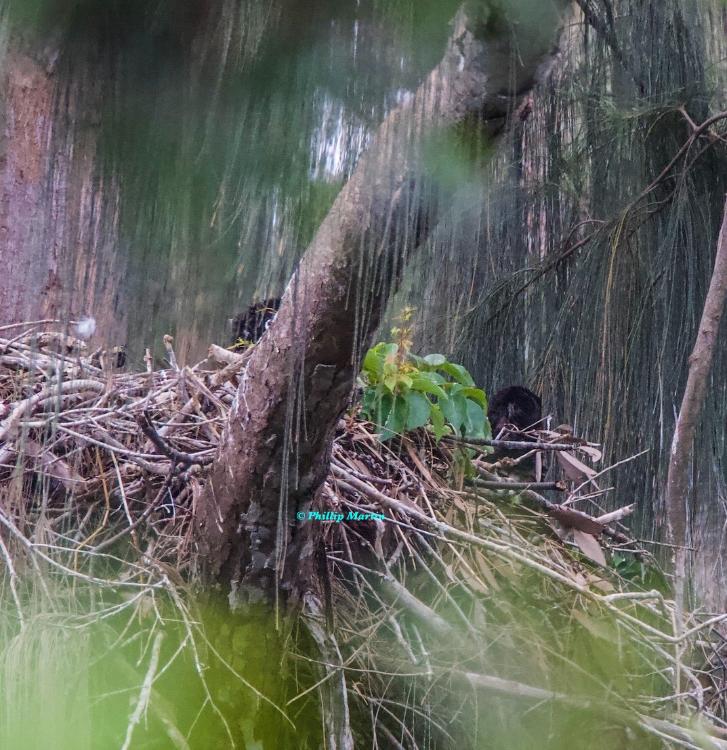
*Australian Pines are not really pines and do not have needles. They have long needle-like terminal branches which are covered by very small green scale-like leaves
|